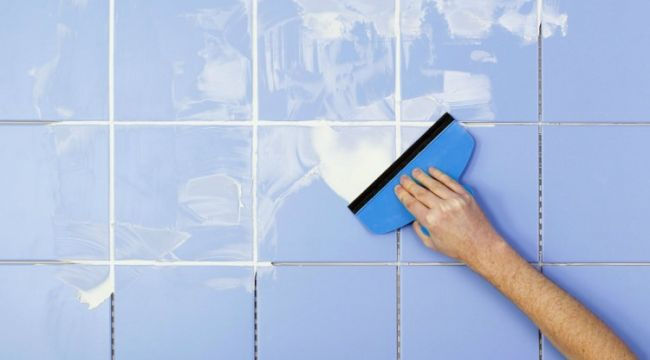When it comes to sealing surfaces against water, the question of whether epoxy truly waterproofs can be a critical one. You might have heard mixed opinions on the matter, leaving you uncertain about its effectiveness. Let’s address the specifics and shed light on this common query about epoxy’s ability to keep water at bay.
Understanding Epoxy Waterproofing Properties
- To comprehend the efficacy of epoxy waterproofing, one must delve into its molecular structure and bonding mechanisms. Epoxy’s ability to resist water penetration lies in its chemical resistance, a property inherent in its molecular composition. The key to its waterproofing capabilities is the presence of epoxide groups that form cross-linked polymers when combined with a hardening agent. This chemical structure creates a dense network that repels water molecules, making epoxy an ideal choice for waterproofing applications.
- Durability testing plays a crucial role in evaluating the effectiveness of epoxy waterproofing. Various tests, such as immersion tests, abrasion resistance tests, and accelerated weathering tests, are conducted to assess the performance of epoxy coatings under different conditions.
- These tests help determine the longevity and reliability of epoxy waterproofing in real-world scenarios, ensuring that it meets the required standards for protecting surfaces from water damage. By understanding the chemical properties and undergoing rigorous durability testing, epoxy waterproofing can offer long-lasting protection against water infiltration.
Factors Influencing Epoxy’s Waterproofing Ability
What key elements contribute to the effectiveness of epoxy waterproofing against water infiltration?
Two critical factors influencing epoxy’s waterproofing ability are surface preparation and environmental conditions.
- Proper surface preparation is essential for maximizing epoxy’s waterproofing capabilities. This involves ensuring that the surface to be coated is clean, dry, and free of any contaminants such as oil, grease, or dirt. Any imperfections or cracks on the surface should be repaired before applying the epoxy to ensure a seamless and watertight finish. Inadequate surface preparation can compromise the adhesion of the epoxy coating, leading to potential water infiltration issues.
- Environmental conditions also play a significant role in determining the effectiveness of epoxy waterproofing. Factors such as temperature, humidity, and exposure to UV light can impact the curing process and overall performance of the epoxy coating. It’s crucial to follow the manufacturer’s guidelines regarding environmental conditions during application and curing to achieve the desired waterproofing results.

Application Techniques for Waterproof Epoxy Results
- Surface preparation plays a crucial role in achieving optimal waterproofing results when applying epoxy coatings. Before starting the application process, ensure the surface is clean, dry, and free of any contaminants that could compromise adhesion. Properly preparing the surface will promote better epoxy penetration and bonding, enhancing its waterproofing capabilities.
- When applying epoxy for waterproofing, consider the thickness of the coating. Follow manufacturer recommendations regarding the ideal thickness to achieve effective waterproofing. Applying epoxy too thinly may result in inadequate coverage, compromising its ability to provide a waterproof barrier.
- Additionally, be mindful of ventilation requirements during the application process. Proper ventilation is essential to ensure the safety of individuals applying the epoxy and to facilitate the curing process. Adequate ventilation helps in expelling harmful vapors and allows the epoxy to cure effectively, contributing to its waterproofing performance.
- Lastly, adhere to the curing time specified by the manufacturer. Allowing the epoxy sufficient time to cure will ensure that it forms a strong, waterproof seal. Rushing the curing process can lead to subpar waterproofing results.
Testing the Effectiveness of Epoxy Waterproofing
- Considering the meticulous surface preparation and application techniques for waterproof epoxy, assessing the efficacy of the waterproofing achieved becomes imperative for ensuring optimal outcomes. Water resistance testing plays a crucial role in determining the effectiveness of epoxy waterproofing.
- This testing involves subjecting the epoxy-coated surface to various water exposure scenarios, such as immersion, water spray, or humidity chambers, to evaluate its ability to repel water and prevent moisture intrusion. By conducting water resistance testing, one can assess the durability and longevity of the epoxy waterproofing system under different environmental conditions.
- Epoxy durability assessment is another key aspect of testing the effectiveness of epoxy waterproofing. This evaluation involves analyzing the performance of the epoxy coating over time, considering factors like adhesion strength, chemical resistance, impact resistance, and overall stability. Through rigorous durability assessments, one can determine the service life of the epoxy waterproofing system and identify any potential weaknesses that may need to be addressed.
Tips for Maintaining Epoxy Waterproofing Results
- To maintain optimal results with epoxy waterproofing, regular inspection and proactive maintenance are essential. Preventing moisture intrusion is crucial for preserving the effectiveness of the epoxy waterproofing. Ensure that the area remains free of standing water or excessive humidity, as these can compromise the seal over time. Regularly check for any signs of water damage or leaks to address them promptly and prevent further issues.
- Sealing cracks is another critical aspect of maintaining epoxy waterproofing. Even small cracks can allow moisture to seep through, undermining the waterproofing properties of the epoxy. Inspect the surface for any cracks or gaps regularly, and repair them using suitable epoxy sealants to ensure a continuous and watertight barrier. Additionally, consider applying a fresh coat of epoxy sealant periodically to reinforce the waterproofing protection.
Conclusion
In conclusion, epoxy does have waterproofing properties that can provide effective protection against moisture and water damage. Factors such as surface preparation, application technique, and proper testing are crucial in achieving optimal waterproofing results with epoxy. By following best practices and implementing regular maintenance, you can ensure the longevity and effectiveness of epoxy waterproofing in various applications.